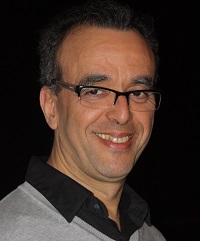On May 6, 2020, Abdel Lisser (Université Paris-Saclay – LRI, Laboratoire de Recherche en Informatique) ran a Seminar@SytemX on the following topic: “On chance constrained optimization”.
This seminar was organized jointly with the Operations Management team (OM) of the LGI laboratory at CentraleSupélec.
Abstract:
Chance constrained optimization, also called probabilistic constrained optimization, is one of the main topics in stochastic optimization for dealing with random parameters in optimization problems. A chance constraint involving random parameters should hold with a prescribed probability which is in practice close to one. The use of chance constraints goes back to the late fifties. They have been widely applied in statistics, finance, engineering, energy planning etc. In stochastic optimization, decisions are generally taken prior to the observation of the random events. This might lead to the violation of certain constraints which can be balanced by compensation actions also called recourse actions at later stages. When the recourse costs are known, a penalization function is introduced in the objective function. These models are called two-stage or multistage stochastic optimization problems. When the recourse actions are not available or cannot be considered due to some hard constraints for a given problem, decision-makers might be interested by solutions which could be infeasible for certain random parameters. In this case, chance constrained programs can be used efficiently. This talk presents the basic ideas of chance constrained optimization, a brief survey of the state-of-art as well as the main theoretical and practical challenges.
Biography:

Abdel Lisser received his PhD from University Paris Dauphine on interior point methods in 1987, and the habilitation thesis from University Paris Nord in 2000. His main research topics are stochastic optimization especially chance constrained optimization, conic optimization and recently stochastic game theory with applications mainly to telecommunication networks and energy management. He has been research engineer in Orange Labs for more than a decade. He is full professor at University Paris Sud since 2001. He has several international collaborations with universities in US, Canada, Norway, Austria, Italy, China, Hong Kong, Chili and Brazil. He published several papers in leading journals and conferences, and has been a member of several journals and conferences boards.
Watch the replay:
